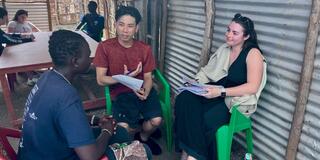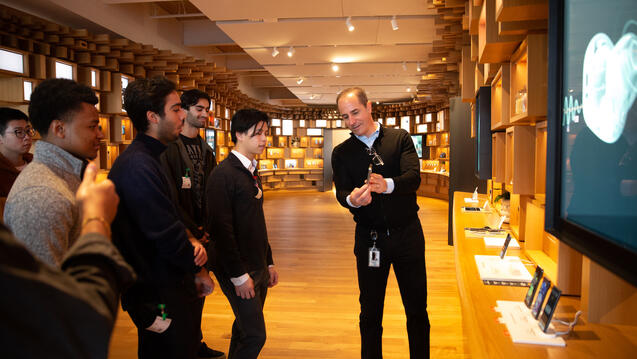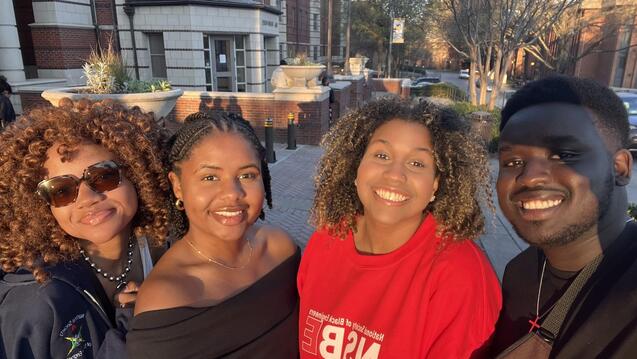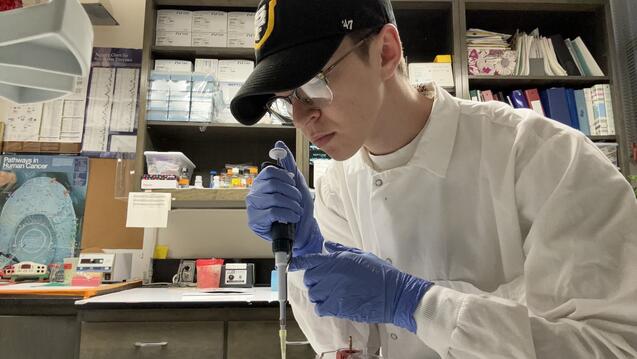Law Students Work with Refugees in Kenya

Four second-year law students spent their spring break at the Kakuma refugee camp in Kenya, where they learned what it’s like to live in confinement.
“Kakuma is an unimaginably harsh environment for almost 300,000 people to live in: extreme heat, arid climate, and total lack of infrastructure like roads, hospitals, and waste management systems,” Grace Wainscoat JD ’25 said. “These conditions alone create myriad human rights issues, but the addition of often arbitrary and illegal restrictions on movement, preventing people from leaving the camp, feels akin to a desert prison in a way I could not understand without being there.”
The law students conducted 40 interviews with refugees from Sudan, South Sudan, Somalia, Ethiopia, Democratic Republic of Congo, Rwanda, and Burundi — whose rights to health, education, work, and free expression are limited because they are restricted from moving outside the camp. The students worked with Elimisha Kakuma, a program that provides higher education to high school graduates in the refugee camp.
“Students with the clinic got to truly cross the bridge from theory to practice,” said Professor Lindsay M. Harris, director of the Frank C. Newman International Human Rights Law Clinic at USF, who supervised the students. “They engaged in intensive interviews, often under challenging circumstances, within the camp with a cross-section of camp residents. They got to witness firsthand the realities of living in a protracted refugee situation.”
The students also learned what it means to navigate the delicate power dynamics among local, national, and global stakeholders, Harris and Wainscoat said.
“Our recent travel to Kakuma refugee camp cemented my commitment to human rights lawyering and building transformational partnerships with human rights advocates,” Wainscoat said.
The Kakuma refugee camp has existed since the early 1990s. It was originally a refuge for the “Lost Boys of Sudan,” 20,000 boys of the Nuer and Dinka ethnic groups who were displaced or orphaned during the second Sudanese civil war. Kakuma is now home to 285,000 refugees in the northwest region of Kenya.
After a week of interviews, the students sought input from the Kakuma community and are now working on developing “one pagers.” These information sheets provide facts about movement passes within Kenya and about documents that permit refugees to travel outside of Kenya. They are also drafting a report of their findings to present to the U.N. High Commission on Refugees and to the Kenyan Department of Refugee Services.
Raniele Reyes JD ’25 said USF’s motto, Change the World From Here, has been ingrained in his legal education.
“At times, I was convinced that ‘from here’ wasn’t until after graduation,” Reyes said. “However, our team has the opportunity to do just that. With the stories our team has gathered, it is our goal that we begin the work, alongside community-based organizations, to advocate for the rights of those living in Kakuma refugee camp and, in turn, change the world from here."


